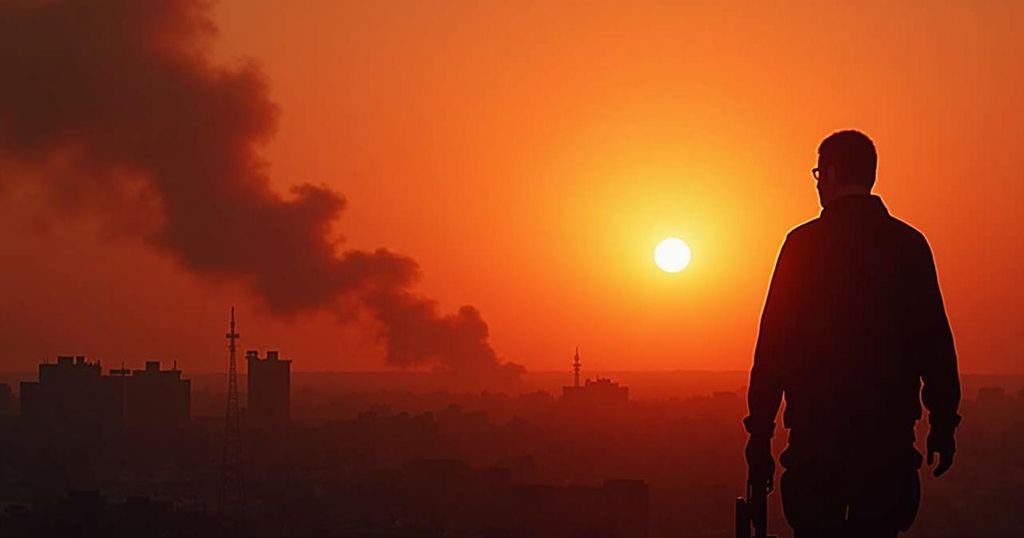Israel has been accused of conducting a rare strike in central Beirut, claiming the lives of three PFLP leaders, amid reports of an airstrike that killed Hamas leader Fateh Sherif Abu el-Amin in southern Lebanon. The strikes raise alarm over escalating violence and the humanitarian crisis in the region, with reports indicating significant casualties and widespread displacement.
A recent escalation of violence in the Middle East has resulted in grave developments, including an Israeli airstrike in central Beirut, Lebanon, that allegedly killed three officials from the Popular Front for the Liberation of Palestine (PFLP), marking the first such military action in that region since 2006. Eyewitnesses reported extensive destruction, with initial footage revealing a multi-story apartment building severely damaged, and the bodies of victims apparently thrown onto the street by the force of the blast. This strike reportedly occurred near the Kola intersection, a central hub for public transport within the city. In a related development, Hamas, a prominent Palestinian militant group, announced the death of its leader in Lebanon, Fateh Sherif Abu el-Amin, during an airstrike targeted at his residence in the Al-Bass refugee camp in southern Lebanon, according to local media reports. The Israeli military has yet to confirm these incidents. These strikes are part of a series of increasingly aggressive military actions undertaken by Israel in Lebanon, reportedly aimed at dismantling the military leadership of Hezbollah, a group that has recently suffered considerable casualties with the loss of several senior leaders to Israeli airstrikes. The violence comes amidst a larger context of conflict, with reports indicating over a thousand Lebanese casualties due to ongoing airstrikes by Israel, and the displacement of approximately one million people following the escalation. Each strike amplifies the existing tensions in a region rife with geopolitical complexities, drawing responses from various international and regional actors who express concerns regarding sovereignty, territorial integrity, and the need for strategic stability in Lebanon and the Middle East at large.
The recent military actions in Lebanon represent a significant intensification of the ongoing conflict between Israel and various Palestinian militant groups, particularly Hamas and the PFLP. These developments unfold against a backdrop of prolonged tensions and hostilities in the region, most notably affecting Lebanon and its major Palestinian refugee camps. Since 2006, when Israel last conducted strikes within the Lebanese capital, the situation has evolved dramatically with increasing casualties and displacement of civilians, exacerbating an already critical humanitarian situation. Furthermore, Israel’s military operations are intensified by the backdrop of its ongoing confrontations with Hezbollah, as well as broader conflicts involving Iran’s influence in the region.
In summary, the recent Israeli airstrikes in Beirut and southern Lebanon mark a troubling escalation in the already volatile situation in the Middle East. With multiple casualties reported and critical blows dealt to militant leadership, the potential for further conflict remains high. Moreover, the substantial humanitarian toll, including mass displacements and high civilian casualties, necessitates urgent international attention and intervention to navigate towards a resolution.
Original Source: www.theguardian.com







